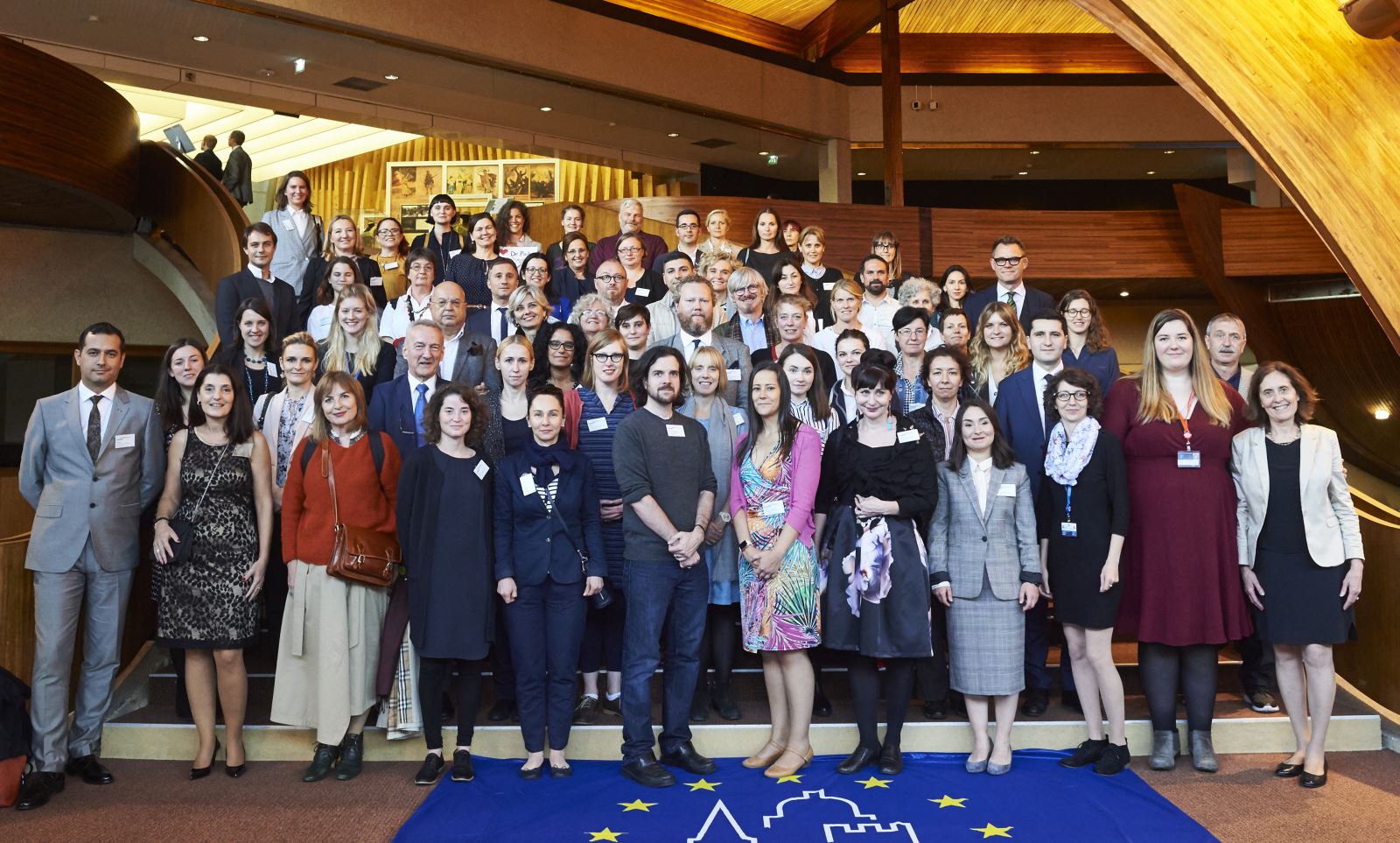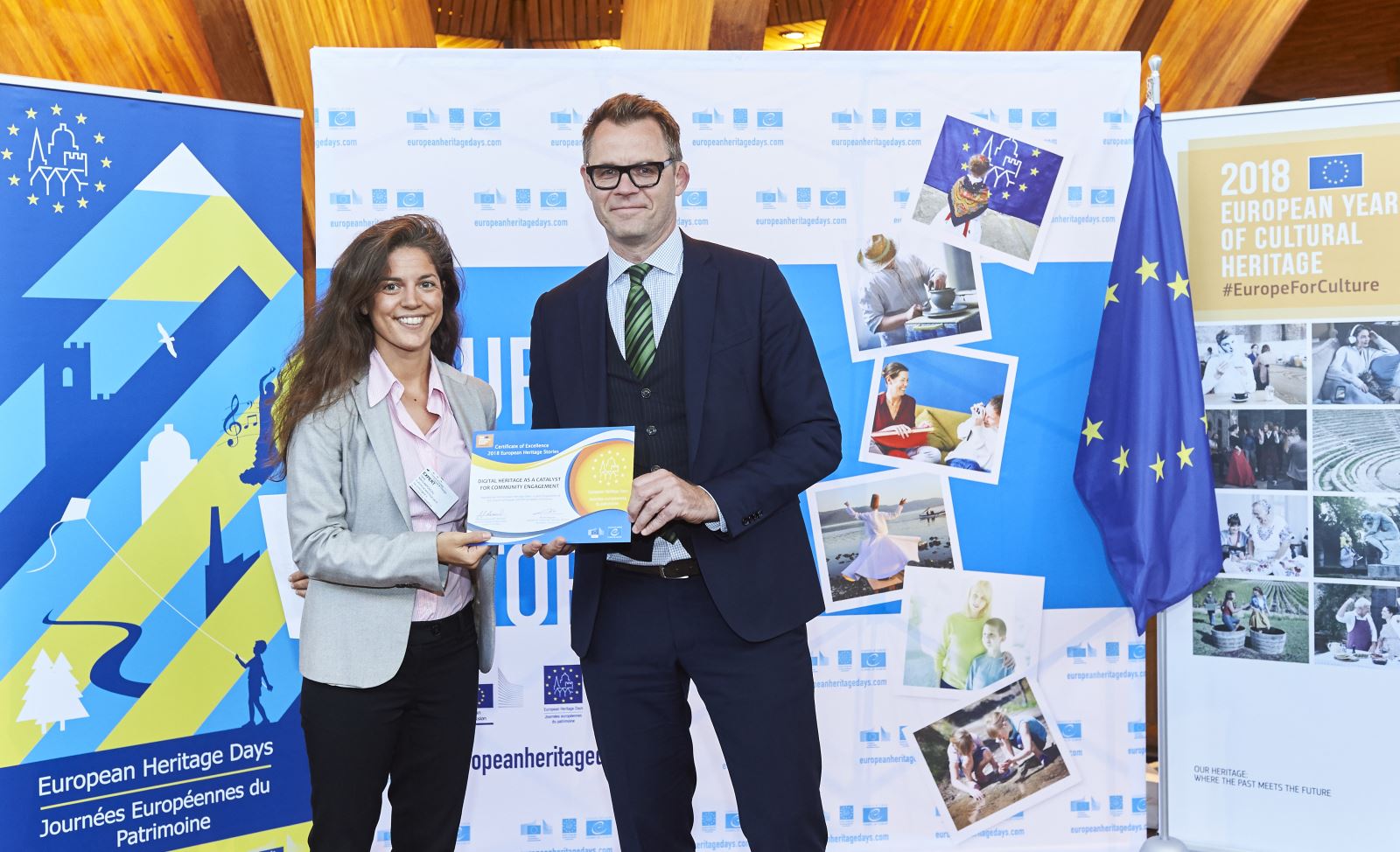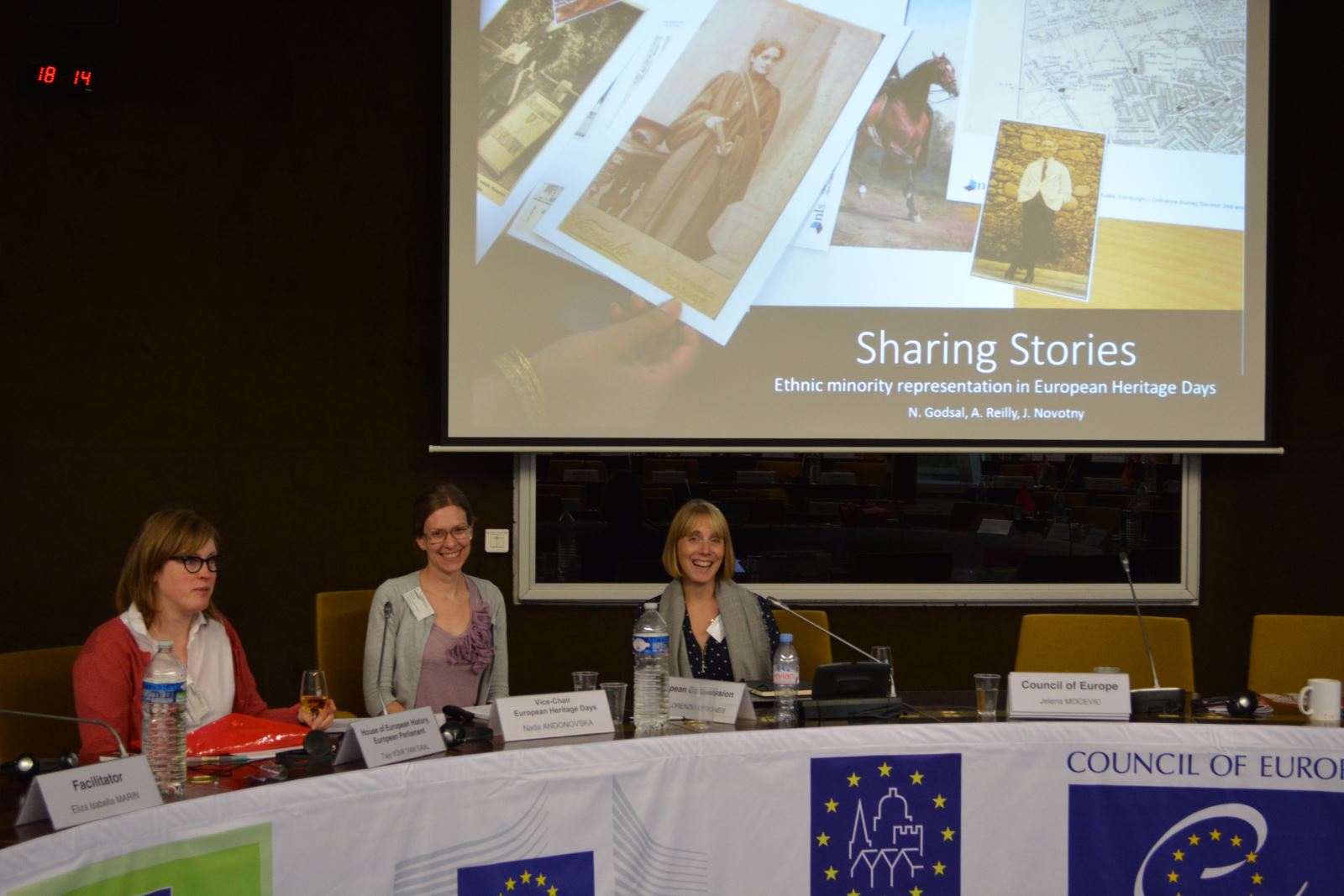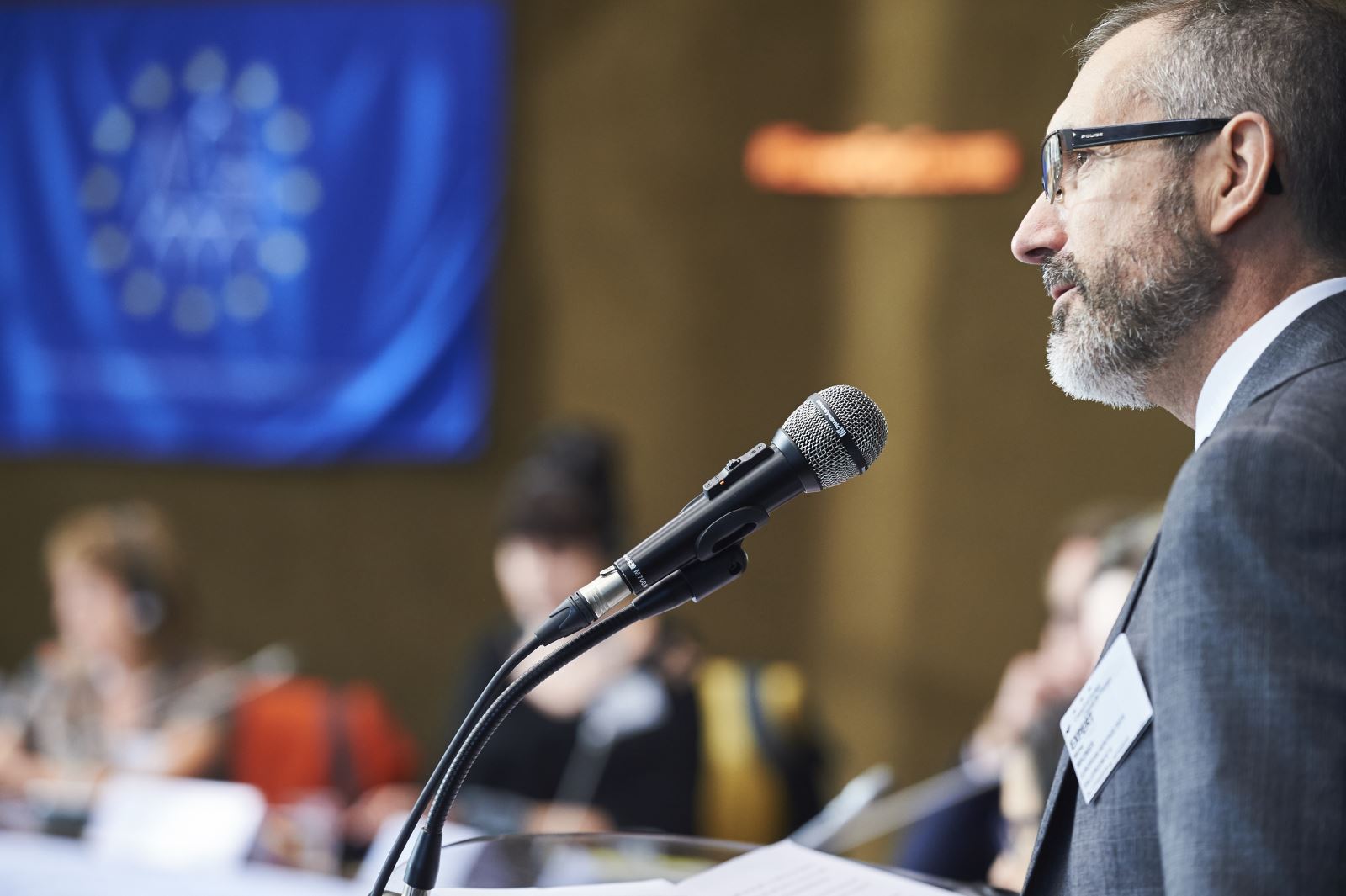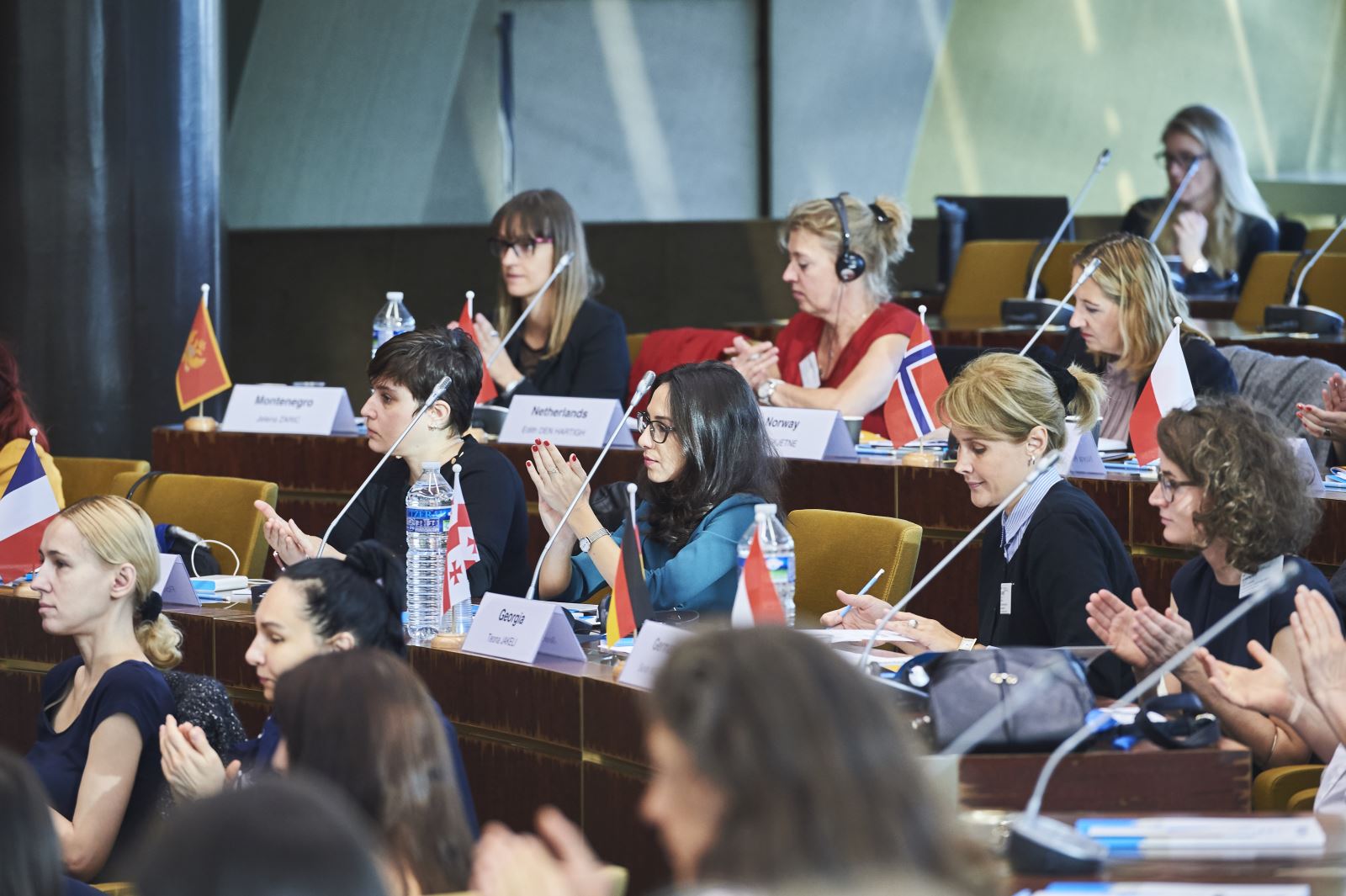European Heritage Days Assembly 2018 Wraps up an Exciting Season of Heritage Celebrations
European Heritage Days Assembly 2018 Wraps up an Exciting Season of Heritage Celebrations
The passion for sharing heritage has brought millions of Europeans together in the celebrations of European Heritage Days and European Year of Cultural Heritage 2018. The same enthusiasm and the wish to keep the momentum going gathered European Heritage Days National Coordinators for an annual meeting in Strasbourg last week.
Taking place on 17-19 October, European Heritage Days Assembly 2018 was an inspiring reunion that radiated with creative energy. Over 40 culture and heritage specialists participated with speeches, presentations, ideas, and projects proposals for improving the European heritage landscape in 2019 and beyond.
The three-day programme included a set of sessions and workshops dedicated to discussing challenges and success stories from 2018, as well as to setting the stage for an even more exciting 2019. Below are some of the event highlights.
Towards the Celebrations of Arts and Entertainment
Pop-up theatres, open-air cinemas, music festivals, photo exhibitions, concerts, dance performances, fireworks, and games are just some of the things to expect to see within European Heritage Days 2019. With the theme Arts and Entertainment, next year’s events will focus on the heritage of theatre, opera, dance, puppetry, street art, music, juggling, storytelling, and numerous other skills and talents that have been cherished in Europe for generations.
This new framework for exploring heritage will offer new perspectives on its values for European citizens. Historic places and people will be presented in a new light to further enhance heritage understanding and appreciation. The National Coordinators and local event organisers will be inspired to take the celebrations to a new level and present untold heritage stories and never-before-seen places.
The European Heritage Storytelling Continues
Introduced in spring 2018 as pilot initiatives within European Heritage Days, European Heritage Makers Week (EHMW) and European Heritage Stories enjoyed remarkable success with hundreds of people sharing their experiences. As valuable extensions of European Heritage Days mission to promote heritage, both initiatives were presented at the Assembly and will be continued in 2019.
The call for European Heritage Makers Week will be announced early next year while the deadlines for story submissions will once again symbolically coincide with the celebrations of Europe’s Day in May. All the deadlines and project information will be available on the project page on the portal as soon as they are available.
Similar to EHMW, the European Heritage Stories initiative will be extended to an additional ten projects next year. With over 90 submissions in 2018, it brought numerous heritage sites and stories into the spotlight, putting them on the heritage map of Europe. Its continuation will further encourage individuals and communities to explore European contexts of local heritage and maintain it for future generations.
Expansion of Cross-Frontier Collaboration
The European Year of Cultural Heritage inspired several heritage organisations and institutions to think beyond traditional approaches to heritage. They searched for cross-cultural and cross-regional links in Europe, as well as people and communities whose heritage stories have not been told yet.
One of the cross-frontier collaboration projects carried out in 2018 and presented at the Assembly is “Visiting Neighbours,” which connected heritage communities of Estonia, Latvia, and Lithuania. By exploring the common history and cultural environment of the countries, the project uncovered the unique bonds that bring people from these regions together. At the same time, the project explored the European dimensions of local heritage, presenting it through a set of cultural activities organised throughout the year.
Another project that crossed borders is an initiative dedicated to “Increasing minority participation in the EHD programme” coming from UK-Scotland and UK-England. The two countries collaborated to explore minority heritage and helped feature their stories within European Heritage Days. Through further research, the project aims to increase the participation of various communities across the United Kingdom and share the best practices for inclusion with other countries.
Additional Concepts and Topics Discussed
With 2018 being a special year for European heritage, the discussions at the Assembly covered a wide range of topics. As a key event for making European Heritage Days possible, the event provided space for discussing critical topics in the field of heritage.
One of the concepts discussed is The Sense of Place, which was introduced by Dragana Lucija Ratkovic Aydemir, Director of Muses from Zagreb. Focusing on a community approach to interpreting heritage, she presented impressive examples of the design of heritage attractions together with local communities in Croatia and neighbouring countries.
The Future of European Heritage was another central theme at the Assembly. The panellists from European Commission, Council of Europe, European Parliament, and Interpret Europe offered their views on where European heritage days is headed and how its future can be made brighter.
Central to discussion surrounding European heritage, the concept of identity was the focus of one of the two practical workshops that were held on day two of the Assembly. Led by Sofia Trouli from The Museum of Contemporary Art of Crete, the workshop reconstructed the concept of European identity. The participants were inspired and encouraged to explore all the meanings of this concept and its value for the citizens.
Another group of participants had a chance to attend a workshop dedicated to youth engagement, specifically focusing on strategies for making European Heritage Days events more relevant to the young people. The workshop was led by Ana Gaio, Vice-President of ENCATC Board (European Network on Cultural Management and Policy).
Combined with inspiring high-level discussions, speeches, and presentations, these practical sessions helped National Coordinators discover new opportunities for European Heritage Days in 2019. With the next year’s theme promising a great deal of innovation in event organisation, European Heritage Days Assembly 2018 provided valuable guidance on how to build upon the success of this year’s celebrations and create even more remarkable heritage experiences in future.
